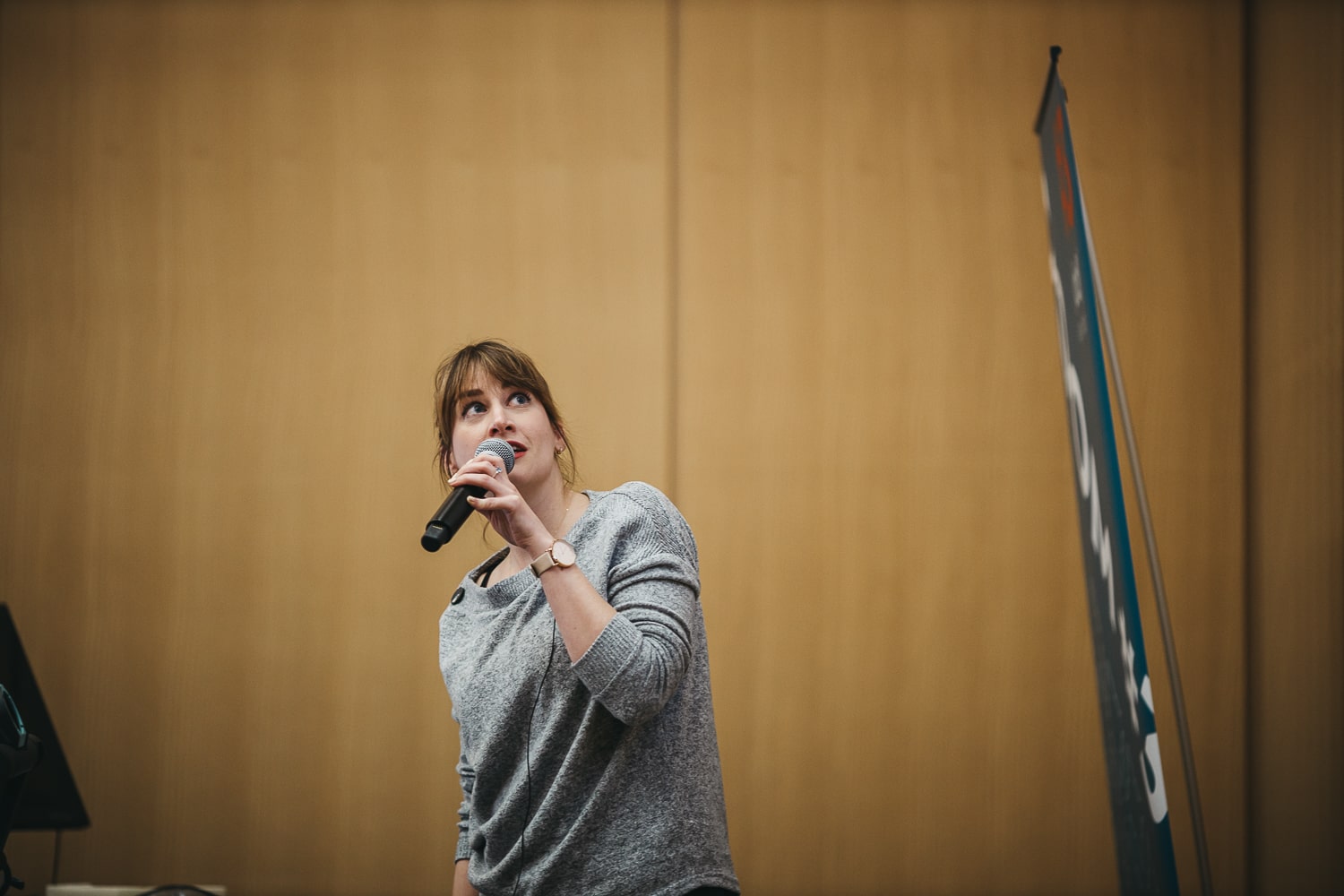Getting ready to present.
Introduction
This is one of the hardest posts in this series for me to write, as I am publicly not that confident when it comes to speaking. It’s a battle I have to fight each time I know I have to present.
There are a few techniques I use to help me do so, and a number that have been advised to me over the last couple of years. For the rest of this blog, we will explore them.
Talking through your ideas with someone you feel comfortable with.
This is something I do throughout all the stages of a talk. From coming up with ideas, constructing them into a talk, to adjusting and evolving them during the latter.
Talking through the concepts and points you feel you want to discuss with someone in the same industry is useful because:
-
It highlights which of the points you are strongest on.
The areas you are particularly passionate or defensive of — the ones you can defend to the end of the earth — those are the bits of your talk you know inside and out. For the other areas, you may want to get more comfortable with or talk about them in less details.
-
You can develop the ideas and expand on their points.
Having another person’s point of view can open your eyes to other angles on the subject matter and expand upon your own views.
Doing this helps me. It shows me I know my subject matter; that I can reinforce my ideas and have them evolve through a discussion in a safe environment. It also allows me to find out which areas I need to research more on.
Bullet-point your thoughts.
When I was first taught about writing code, I was told to write the logical steps in bullet points. I do the same with talks.
I write bullet points on the points I would like to make, or demos I would like to do on paper. I then read through and sort them into a coherent order.
Knowing the talks are built from a logical order helps my confidence as I know I can make it sound natural and have a natural flow of points. Flow is something that will be covered in a later blog post, but for me, if I can make a talk feel less like a presentation of points and more like a conversation, it helps my lack of confidence.
Rehearse (in stages).
Knowing your content can boost your confidence.
People approach rehearsing their talks in different ways. I find it best to first rehearse at home.
-
Full talk, relaxed setting.
First without timers and then by introducing timed sections. This doesn’t have to be a full performance: for example, I sit on my sofa with my clicker in my hand, laptop on my lap.
-
Practising the sections that you are less comfortable with.
A full rehearsal will show you which sections you don’t know that well. You don’t need to rehearse the full talk each time.
-
Rehearsing in a fake presentation setting.
Closer to the actual talk, I like to hook my laptop up to the TV and practice the talk the way I will present it. It means I can use the space of the room, not rely on reading notes I have and get a feel of what it might actually feel like to present.
Some others have suggested:
-
Talking in the bath.
Personally, I like my baths to remain a relaxing, safe space, free of work. I do know someone who likes to practice their talks during their bath as they can then rehearse without glancing at their notes. Apparently, their bathroom has good acoustics too.
-
Listening to recordings of yourself.
Some like to record their talks and listen to them as part of their practice.
For me, there is such a thing as over-rehearsing. I trip up if I think I miss a point in the talk. For me, rehearsing once a week for about 3 weeks before the talk is peachy. You will find your own balance and rhythm.
Present in a setting that feels less scary to you.
There are numerous ways you can test the waters for your talk and boost your confidence in presenting it.
-
Blog the content.
Write out your ideas and reaffirm your knowledge of the content of the talk. Added bonus — you can refer to your blog in your talk in case you miss anything or don’t have time to go into the details.
-
Internal talk at work.
Ask at your work if you can present either the full talk or a shorter version of it on a Friday afternoon. Get feedback and criticism from people whose opinion you trust.
-
(Local) meetup.
Present your ideas at a meetup. There are loads of great meetups in the East Midlands, these are great for me as I get more nervous presenting in front of people I know than people I don’t know. Some others find it easier to present to familiar faces. Both choices are available to you across the East Midlands. Support your local meetups by providing them with the great, up and coming speaker that you are, and get a confidence boost from presenting in front of a small and friendly crowd.
Fake it till you make it.
You have rehearsed, you know your content but speaking is still terrifying. That’s ok. We have put up a post for how to prepare and pump yourself up on a day closer to our event.
All in all, the experience will go by very quickly and you might even convince yourself that you are a strong, confident, speaker-person.
Reward yourself for being a badass
I have a reward list. Every time I do something I find hard, I give myself a little reward of my choosing.
We are all very good at focusing on the negatives, but not so good at rewarding the positives. Acknowledge that you’ve done something that takes confidence!
Remember: we are all there to support you
People have come to see you speak about your ideas. They have not come to heckle, but to offer support and learn from you.
Resources
I have put out a few tweets asking others about resources they have found to help with their confidence. Here are some of the results.
Your body language may shape who you are | Amy Cuddy:
This talks about how your own body language can help yourself feel more confident. (Suggestion from Rizwana Akmal).
Video Description:
Body language affects how others see us, but it may also change how we see ourselves. Social psychologist Amy Cuddy argues that “power posing” — standing in a posture of confidence, even when we don’t feel confident — can boost feelings of confidence, and might have an impact on our chances for success. NOTE: Some of the findings presented in this talk have been referenced in an ongoing debate among social scientists about robustness and reproducibility.
The surprising secret to speaking with confidence | Caroline Goyder
Speaking from personal experience, Caroline talks through finding confidence within. (Suggestion from Rizwana Akmal).
In this fun and personal talk, Caroline shares a story of moving from stage-paralysis to expressive self. Accompanied by an unusual prop, she encourages us to use our voice as an instrument and really find the confidence within.
Book: A Gentle Introduction to Speaking in Public | Stephen Haunts
East Midlands author, speaker, do-er Stephen Haunts has a book on public speaking. It includes an entire section on building up the nerve to do a talk.









